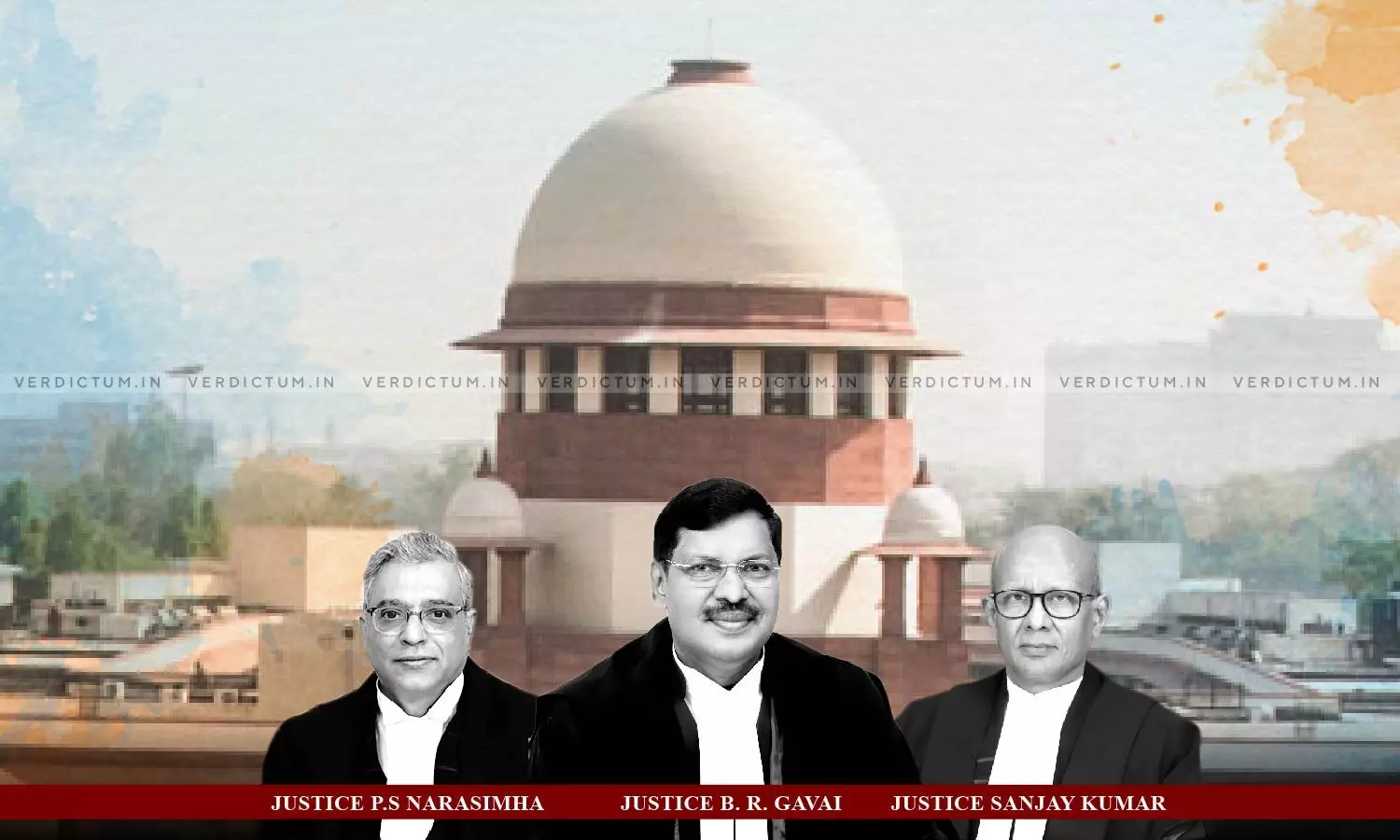
Maximum Statutory Punishment Under JJ Act Is 3 Years: SC Directs Release Of Juvenile Murder Convict Incarcerated For 12 Years
 |
|The Supreme Court directed the release of a juvenile convicted of an offence punishable under Section 302 of the Indian Penal Code (IPC), who was imprisoned for 12 years.
The Court allowed a Writ Petition seeking verification of Petitioner’s claim of juvenility. The Court noted that the Petitioner was a juvenile at the time of the incident and cited Sections 15(1)(g) and 16 of the JJ Act. The Court noted that the maximum period, the Petitioner could have been in custody for a maximum of three years and therefore, could not be detained any further.
The Bench headed by Justice B. R. Gavai and comprising Justice P.S Narasimha and Justice Sanjay Kumar noted, “If the date of birth of the petitioner is 02.05.1989, he was 16 years 7 months old as on the date of the crime, i.e., 21.12.2005. Accordingly, the petitioner was a juvenile in conflict with the law on the date of commission of the offence... In view of Section 16 read with Section 15(1)(g) of the Juvenile Justice Act, 2000, the maximum period for which the petitioner could have been in custody is three years…In the meanwhile, the petitioner has undergone more than 12 years of imprisonment. Having accepted the report of the II Additional Sessions Judge, Khammam, the petitioner can no longer be incarcerated”.
Advocate Rishi Malhotra appeared for the Petitioner, and Advocate Sriharsha Peechara appeared for the Respondent.
The Petitioner and other individuals were accused under Section 302, read with Section 34 of the IPC. The Trial Court convicted the accused individuals and sentenced them to life imprisonment. The Petitioner appealed the judgment and sentence before the High Court, but the appeal was dismissed. The Special Leave Petition filed by the Petitioner, against the order of the High Court, was also dismissed. A Writ Petition was filed seeking verification of his claim of juvenility and consequential orders as per the provisions of the JJ Act.
The Court directed the Trial Court to conduct an investigation and submit a report based on gathering relevant evidence by summoning the relevant officials to produce school records. The Court noted that per the Trial Court's report, if the Petitioner's date of birth were May 2, 1989, he would have been 16 years and 7 months old during the crime.
The Court noted that per Sections 16 and 15(1)(g) of the JJ Act, the Petitioner could only be held in custody for a maximum of three years. However, since the Petitioner had already spent over 12 years in custody, the Court held that he could not be incarcerated further.
Accordingly, the Court allowed the Petition and directed the release of the Petitioner.
Cause Title: Makkella Nagaiah v The State of Andhra Pradesh